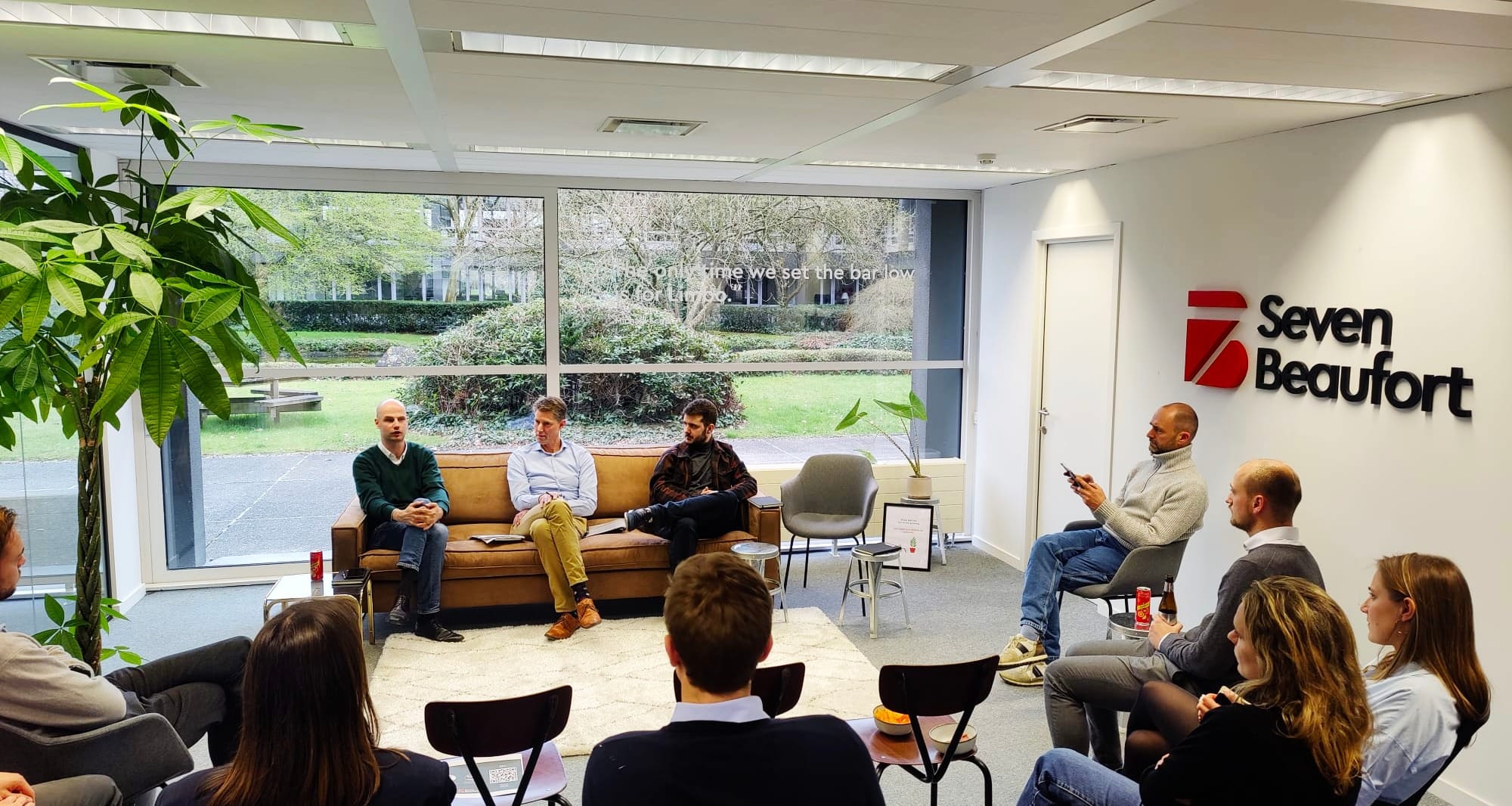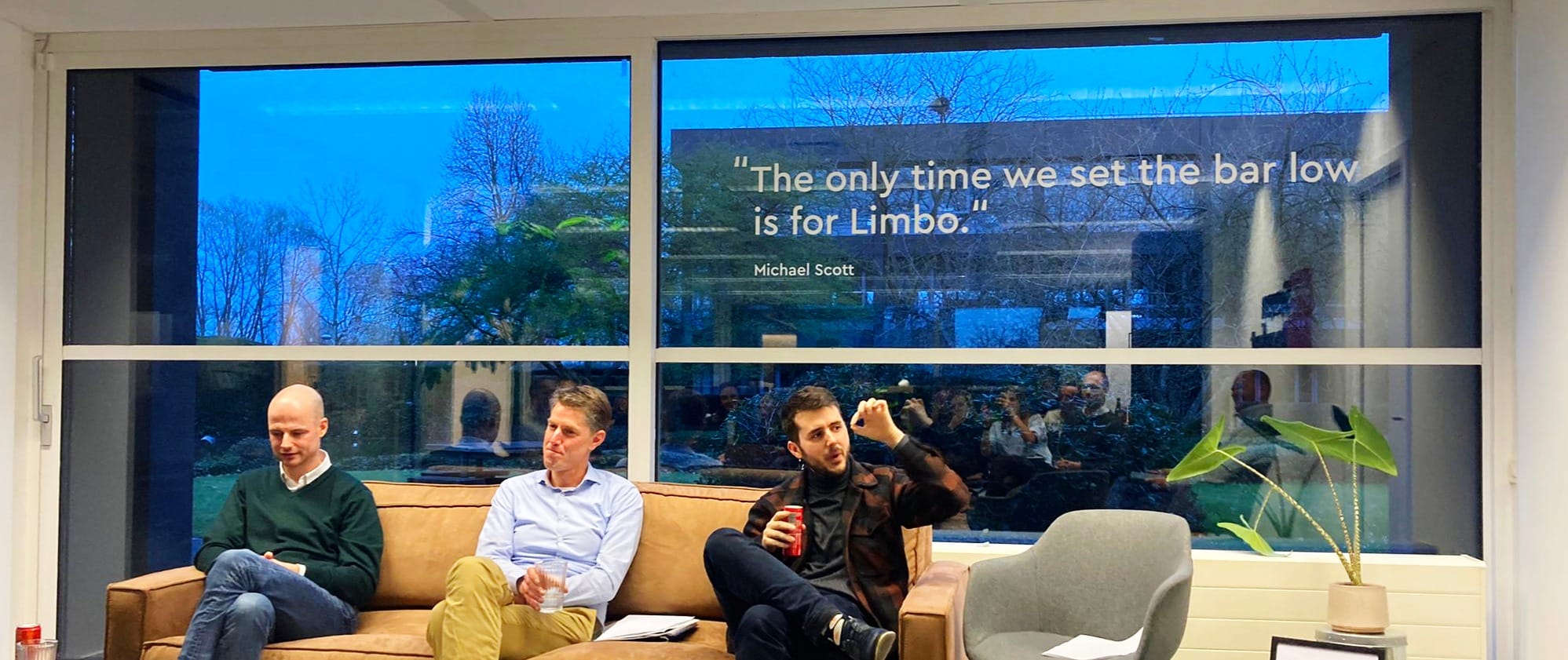We invited David Martens (Prof. UAntwerpen), Kristof Pelckmans (AI Consulting Director, Cognizant) and Deevid De Meyer (Founder, Brainjar) to discuss current development in AI, what it means for us today, and what is on the horizons.
Here are our 6 key takeaways from the panel discussion:
1. AI tools will not replace you, they will help you to become better.
The tools are there to support you. It's a human + AI story, not a human vs. AI story. AI is a tool that can enhance your work and help you achieve more efficient and effective results. Those who embrace AI and use it to their advantage will have an edge over those who do not, as they will be able to achieve more in less time, with fewer resources and costs.
2. Just like the industrial revolution, the AI revolution will have a defining impact on humanity.
The first 'machine revolution' was when we tripled the power of the steam engine. We were able to exponentially generate muscle power. From this moment on the population exploded.
The current developments in AI again introduce such a revolution. And we're at the very beginning of this revolution.
The extraordinary part is: with muscle power we are limited to the capacity of the physical world. Algorithms work on bits, not atoms, meaning they can be infinitely scaled. Will we be able to make our thinking capacity infinite, in contrast to our limited muscle power?
3. One of the most important assets you can have in a future with AI is a good eye.
A good taste, creativity, and strategic thinking will remain key resources only available to humans.
Sure, tools like Adobe Firefly can make everyone more creative and help you generate good results. But true creativity will remain a competitive edge and will reach an even higher level with such a tool.
4. Humanity needs to remain aware of the luxury trap
Before the invention of email, people were sending each other letters. When you received a letter, you thought about it for a couple of days. Then, you started drafting a reply, carefully weighing your every word. After a few days your response would be ready to send. With the invention of email, you could send a message to anyone anywhere in the world in a matter of seconds. This created a huge increase in cognitive load for people, making us more efficient and productive. So what was a brilliant innovation, also made us way busier.
This leads to a new line of questions. How will we cope with the rise of powerful AI tools raising the bar of productivity even further? Will this bring us a cognitive overload? How can we have enough cognitive "unload"?
A potential answer lies in redefining the way we work, and how much we work.
5. AI has the potential to have a positive impact on the environment
AI can both positively and negatively impact the environment. AI could be used the optimize processes, such as Credit Scoring for banks, making them less energy-consuming and more efficient. On the other hand, training AI models can be very energy intensive leading to increased carbon emissions and other environmental impacts.
Overall, it is important to consider the societal value the AI application creates and balance them against the potential detrimental effects on the environment. The impact of AI on the environment is currently negligible, compared to more carbon-intensive innovations.
6. AI models can be as state-of-the-art as you want, but it's all about the data.
The age-old saying for data and algorithms is true here: garbage in = garbage out. It does not matter how cutting-edge your Machine Learning algorithm is, if your source data is of insufficient quality, your model will also underperform. Companies should focus on getting their data quality as this gives you a true edge. Think of the Big Tech companies such as Google; they provide open source algorithms because they know that the true competitiveness lies in their data.
![[object Object]](https://umsousercontent.com/lib_SgVrTchGksgQdBiV/5to2tmehoshuavn2.png?w=306)



